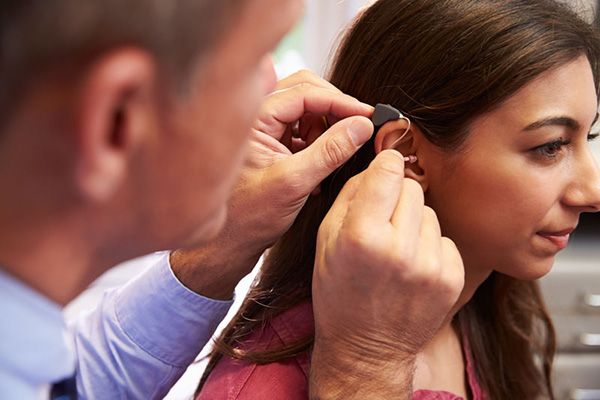Hearing aids are built to withstand some levels of moisture and debris, but they require regular maintenance and cleaning to ensure residue doesn’t build up and clog the essential components of the devices.
In addition, hearing aids can encourage earwax production by stimulating the aural canal while blocking earwax migration out of the ear canals. This can pose a problem for both your hearing aids and your ear health.
Earwax buildup can be painful and also cause whistling in your hearing aids. Getting regular ear and hearing aid cleanings can help prevent these problems.
Cleaning Hearing Aids at Home
When you first purchased your hearing devices, your audiologist probably also encouraged you to buy a cleaning kit. Hearing aid cleaning kits typically contain a wax removal brush, soft cloth, wax pick/wire loop and a vent cleaner. Your audiologist also should have shown you how to use these tools to keep the devices in pristine condition.
It’s important to talk to your hearing care provider about how your specific devices should be cared for. Here are some tips to get you started:
- For BTE devices, remove obvious debris with the soft cloth. Take out the earmolds and soak them in warm water once a week. Do not reapply earmolds until they are totally dry.
- For ITE hearing aids, pick out excess earwax with the hook and dust them off with a dry cloth. Don’t expose any part of the hearing aid to water.
- The inside of your hearing devices is very delicate technology and can be easily damaged. Never try to take your hearing aids apart for cleaning.
Hearing aids can also be prone to collecting moisture from sweat and rain. Purchasing a dehumidifier to store your hearing aids in at night will remove this moisture and extend the lifespan of your devices.
When to See a Professional
If you are ever unsure of how to care for your hearing devices, schedule an appointment with an audiologist. They can make sure the devices are fully cleaned and can show you what to do for your at-home routine.
If you try cleaning your devices at home and are still experiencing whistling, feedback or other discomfort, visit your audiologist right away to diagnose and fix the problem.
To schedule an appointment with an expert audiologist, call SH Audiology today!

